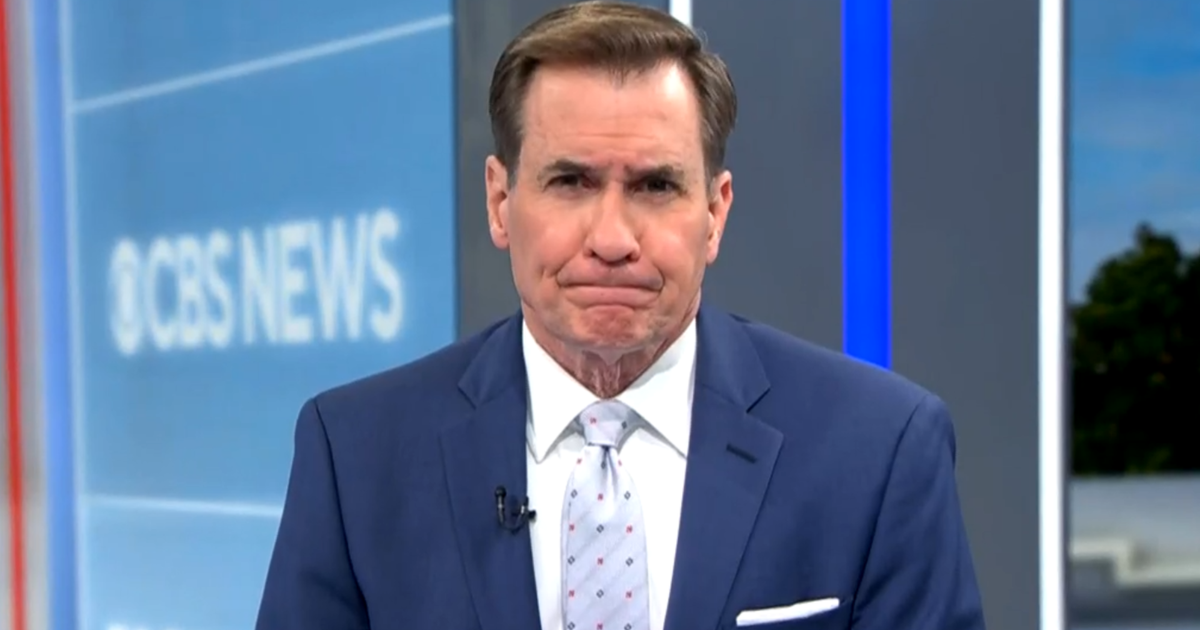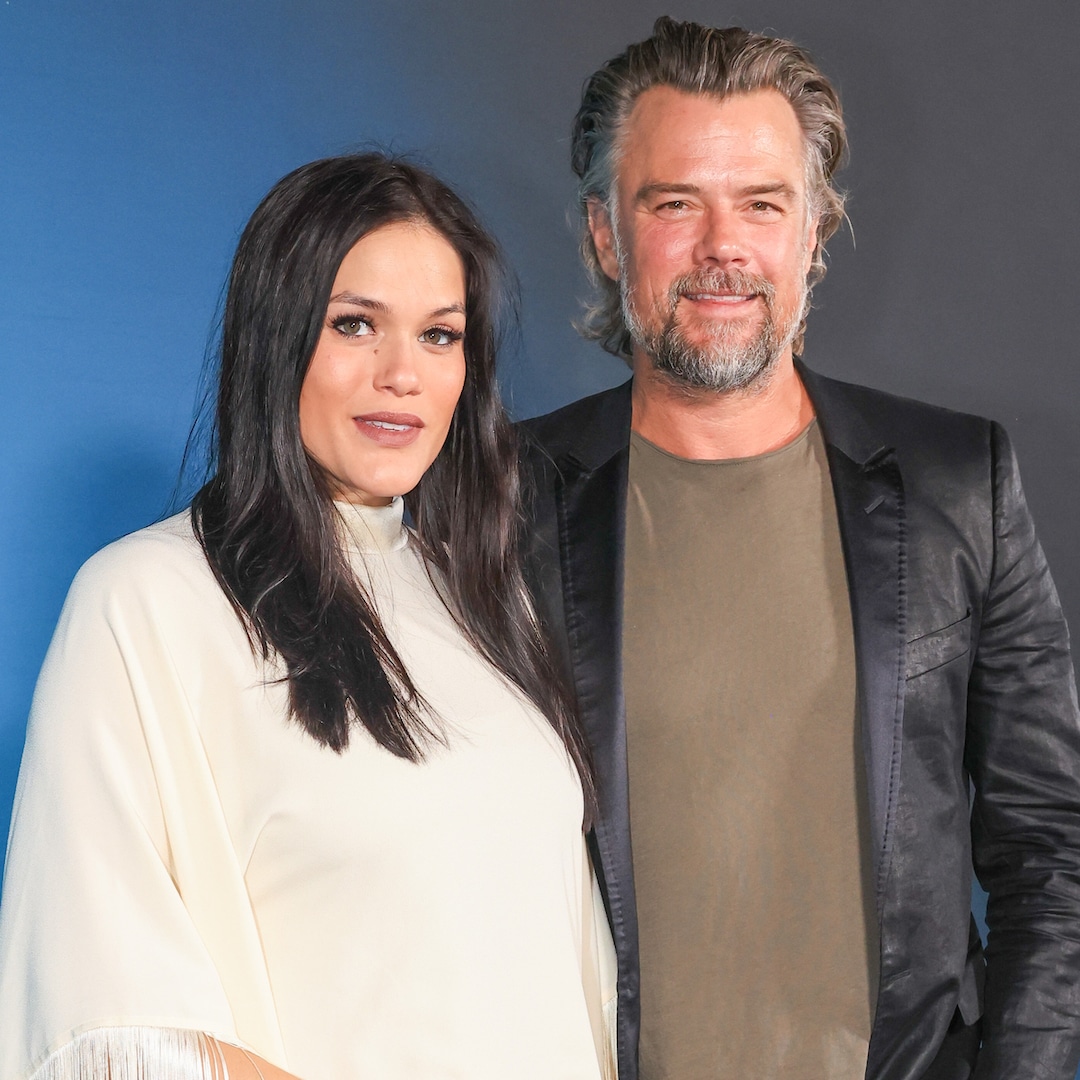The following is a transcript of an interview with Adm. John Kirby, White House National Security Council spokesperson, that aired on April 7, 2024.
MARGARET BRENNAN: And we turn now to John Kirby, he is the Coordinator for Strategic Communications for the White House National Security Council. Welcome back.
COORDINATOR FOR STRATEGIC COMMUNICATIONS, NATIONAL SECURITY COUNCIL, JOHN KIRBY: Thanks, Margaret.
MARGARET BRENNAN: So Prime Minister Netanyahu says Israel is one step away from victory, but they still plan to go into Rafah. Has Netanyahu agreed to President Biden’s request to make this targeted and not a ground of thought?
KIRBY: We have been very clear with the Prime Minister and his team, that we don’t support a ground operation in Rafah, that there are other ways, other options that they need to look at, for how they’re going to go after the Hamas that still is in Rafah. We had a virtual meeting last week, we expect to have an in person meeting with Israeli counterparts in the next week or so. We’re still narrowing down the schedule where we hope to be able to present in more detail. Our thinking some of our alternatives, the kinds of things that we want them to learn from our own experiences, about how to do operations of this regard.
MARGARET BRENNAN: So as you heard, the IDF says this is an evolution of the war to draw down some of these troops. Exactly what are they preparing for? Is this for another front in this conflict?
KIRBY: Well, I certainly wouldn’t speak to IDF operations or their planning one way or another–
MARGARET BRENNAN: –They haven’t told the US?
KIRBY: As a Sovereign Military. The indications that we’ve- we’ve been getting from them this morning is this is really largely rest and refit for troops that have been on the ground consecutively now for four months and they need a chance to come- to come out now. What they’ll do with those troops after arrest and refit, I- I can’t speak to. All I can do is say what I said before, we don’t support a major ground operation and Rafah. That has not changed. And we’re looking forward to having conversations with the Israelis about alternatives to those kinds of operations.
MARGARET BRENNAN: You know, there has been a large amount of criticism and skepticism as to how Israel is waging this war in the wake of the deaths of those seven humanitarians this past week.
KIRBY: Yes.
MARGARET BRENNAN: You said on Tuesday, the US has not found any incidents where the Israelis have violated international law. How far reaching is the US investigation of Israel?
KIRBY: I wouldn’t call it a US investigation of Israel. We have a normal process the State Department runs and governs, where they take a look at incidents, particularly those that are being- operations being conducted by partner countries. And they look at them and they assess them against international law. And they’re doing that in real time, Margaret. So, some of them may have looked at and concluded some they’re still looking at it–
MARGARET BRENNAN: –So they may be in violation of international law?
KIRBY: Thus far- thus far, as I said the other day, we’ve not seen any indication they have violated international humanitarian law. But we take this seriously. They take it seriously at the State Department. And we’ll keep looking at this.
MARGARET BRENNAN: Well, the Secretary General of Doctors Without Borders rejected Israel’s explanation of what happened in that World Central Kitchen attack.
KIRBY: Yeah.
MARGARET BRENNAN: Because he lost staff in Gaza, as have other humanitarians more than 200 dead today. Take a listen.
[START SOT]
DOCTORS WITHOUT BORDER SECRETARY GENERAL, CHRIS LOCKYEAR: We do not accept it because what has happened to World Central Kitchen and MSF’s convoys and shelters is part of the same pattern of deliberate attacks on humanitarians, health workers, journalists, UN personnel, schools and homes. This is not just about implementing an effective deconfliction mechanism. Our movements and locations are shared, coordinated and identified already. This is about impunity, a total disregard for the laws of war, and now it must become about accountability.
[END SOT]
MARGARET BRENNAN: This isn’t a mistake, he says. This is a deliberate pattern and he is not the only aid organization to say so–
KIRBY: –We certainly understand–
MARGARET BRENNAN: –Will there be accountability?
KIRBY: We understand the frustration that they have. We share that frustration and there have been too many aid workers killed by Israeli operations. And that is why the President was so firm with Prime Minister Netanyahu and their call this week about they’ve got to change the way they’re doing this. And the deconfliction process does matter. Because there is already communication between aid workers and the IDF–
MARGARET BRENNAN: –And he said it’s pointless, it’s not working–
KIRBY: We’re clearly- we’re clearly–
MARGARET BRENNAN: –It’s clearly failing.
KIRBY: Clearly this broke down, no question about it. We’re not arguing that it hasn’t. We’re- our case to the Israelis, you got to do more, you got to do it better. It’s got to improve, because we’ve already seen some aid organizations now pulling back not just World Central Kitchen but others. This is a time when the people of Gaza need food, water, medicine, more than any.
MARGARET BRENNAN: Right. So the President’s own National Security Memorandum stipulates, as you know, that there can’t be an impediment to delivery of aid. So is negligence, gross negligence, failure to communicate, failure to follow through to protect these eight workers, a violation? Is there any accountability?
KIRBY: Certainly, those things are not acceptable. And again, that was the tenor and the tone of the conversation that Prime Minister- I’m sorry, the President had with the Prime Minister. They have taken some measures of accountability here in the immediate wake of the- of the World Central Kitchen.
MARGARET BRENNAN: Two soldiers.
KIRBY: Two- two were fired. We’re going to be looking to see well, first of all, we’re going through the investigation ourselves right now. We want to reserve judgment till we’ve had a chance to look at their findings. And we certainly expect and this is an important point that the announcements as Israelis have made, while welcome and important, can’t be the end of it. We’ve got to see sustained changes in the way they’re operating on the ground and the way they are allowing humanitarian assistance to get in, unmolested.
MARGARET BRENNAN: And as you know, the Israeli government says that had nothing to do with the President’s calls. They had already planned to take some of these measures.
KIRBY: The President specifically asked for the measures that we saw them announce that later that evening, in the coming day or so.
MARGARET BRENNAN: We’ll see if they follow through. The former Defense Secretary, who you know well, Leon Panetta, said on CNN “in the past, in my experience, the Israelis usually fire and then ask questions.” Is the Biden administration position still, that there should be zero conditions on aid, military aid, to Israel?
KIRBY: I’m not going to get ahead of the President or decisions he might or might not make going forward. He was very clear in his call with the Prime Minister, that if we don’t see some changes in their policies in Gaza and the way they’re prosecuting operations, we’re going to have to make some changes.
MARGARET BRENNAN: So you do- you do think these are Israeli policies then?
KIRBY: I mean–
MARGARET BRENNAN: –Block aid?
KIRBY: They have- they have- they get to decide how they prosecute this war. It’s their operation. We just talked about them pulling troops out and what that means. They get to decide how they prosecute operations. We get to decide how we’re going to react to that and how we’re going to administer our own policy with respect to Gaza. We make those decisions. And the President was clear with the Prime Minister, if there’s not changes, if things don’t get better, than we’re going to have to make changes overall.
MARGARET BRENNAN: So the President is considering withholding, conditioning, doing anything here because for six months now, we have been hearing complaints like this from the humanitarians on this program telling us what’s happening.
KIRBY: Look, again, we- we see ourselves, we’re not blind to the risks that aid workers are in certainly not blind to the suffering that the people of Gaza are going through. And the President again, was clear. I won’t get ahead of that, Margaret, I won’t prejudge decisions he will or won’t make–
MARGARET BRENNAN: — Why haven’t we heard from him on this? He feels so strongly. Why isn’t the President out there talking about this?
KIRBY: You saw his statement after–
MARGARET BRENNAN: — I read a paper statement
KIRBY: — The Prime Minister- call with the prime minister and he will continue to talk to the American people and the members of Congress about what we’re doing and what we’re not doing.
MARGARET BRENNAN: It is of direct national security concern, is it not, that, as the director of national intelligence says there is a generational impact from what is happening on the ground?
KIRBY: — No question–
MARGARET BRENNAN: — That there could be an impact on terror recruit long term here?
KIRBY:
— No question– no question. I mean–
MARGARET BRENNAN:
— So what is the US policy other than wait and see?
KIRBY: It’s not wait and see, I have to take issue with- with that. That is not the policy at all. Two things can be true at once. You can still be a friend of Israel and make sure that they have what they need to defend themselves. And they do need things. I mean, we’re talking about the war in Gaza, rightly so, completely understand that but they’re under threat. They live in a tough neighborhood. They’re under threat from Iran and Iran backed groups all around. They still have a need to defend themselves how they do that matters. Yeah, how they conduct these operations matters. And that’s what we’re talking to them about. And we need to see some changes in the how, or we’ll have to make some changes in our support.
MARGARET BRENNAN: Is there a timeline for when they need to act by because–
KIRBY: We’re looking right now. I mean, again, they made some announcements in the in the- in the few hours after the call. They made some other announcements in the next day about opening up crossings. All of that is welcome. But we’re going to be watching this very, very closely. it has to be sustained and it has to be verifiable.
MARGARET BRENNAN: John Kirby, thank you very much for coming on.




